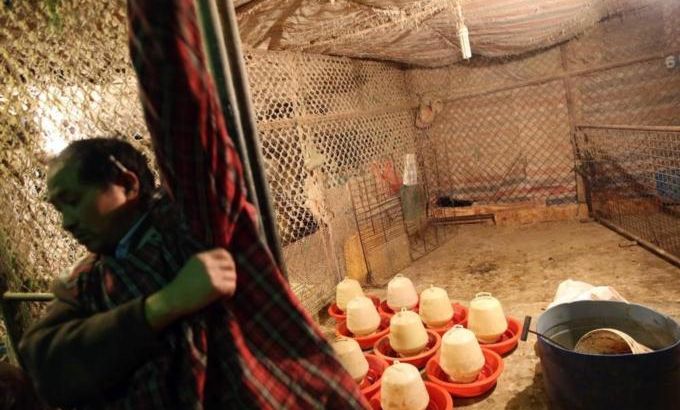More bird flu cases reported in China
Authorities confident they can control H7N9 virus outbreak, as new traces of virus that has killed six people are found.

The total number of humans infected with a new strain of bird flu in China has risen to 21, as scientists struggle to stop the spread of the virus.
The country’s health ministry says three more cases were reported on Sunday, one week after it announced that the H7N9 virus had been found in humans for the first time.
Keep reading
list of 4 itemsTurtles swimming to extinction in Malaysia as male hatchlings feel heat
Could shipping containers be the answer to Ghana’s housing crisis?
Thousands protest against over-tourism in Spain’s Canary Islands
The human infections have been confined to eastern China. Shanghai has recorded 10 cases, including four deaths, with two new cases reported on Sunday. Another case was reported in the nearby Anhui Province on Sunday.
Two H7N9 virus-related deaths have been reported in the neighbouring province of Zhejiang.
Chinese authorities maintain there is no evidence of human-to-human transmission, a conclusion echoed by the World Health Organisation.
The agriculture ministry has ordered Shanghai to halt its live poultry trade and slaughter all fowl in markets where the virus has been found.
Poultry sales suspended
The capital cities of the neighbouring Zhejiang and Jiangsu provinces have also have suspended sales of live poultry.
In Shanghai, uniformed workers sprayed disinfectant at a local market in the city centre, where two live poultry booths were dark and the cages empty.
“People are worried,” said Yan Zhicheng, a retired factory manager who like many elderly people makes a daily trip to market.
“Shanghai people eat a lot of duck and chicken. Now we can’t touch them.”
A senior Chinese health official said on Sunday that the government had mobilised resources nationwide to combat the new strain of bird flu.
Li Bin, the head of China’s National Health and Family Planning Commission, said the government was monitoring hundreds of close contacts of confirmed cases and culling tens of thousands of birds where traces of the virus had been found.
“We are confident we can effectively control it,” the head of China’s National Health and Family Planning Commission
Li Bin said.
State media said the government had sought to improve transparency on the disease after being accused of covering up the 2003 outbreak of Severe Acute Respiratory Syndrome (SARS), which killed about 800 people globally.
“The government’s response […] is completely different from 10 years ago, when information disclosure systems were not established,” Wang Yukai of the Chinese Academy of Governance told the Xinhua news agency.
But some of China’s outspoken internet users remained sceptical of government assurances.
“Get out of here. If it is not infectious then what are you doing shutting live poultry markets?” said Huang Kekedou in a microblog posting.
The US Centers for Disease Control and Prevention on Friday warned of the potential risk should the virus mutate.
“This is a ‘novel’ [non-human] virus and therefore has the potential to cause a pandemic if it were to change to become easily and sustainably spread from person-to-person,” it said in a written statement in which it also clarified that this had not yet happened.